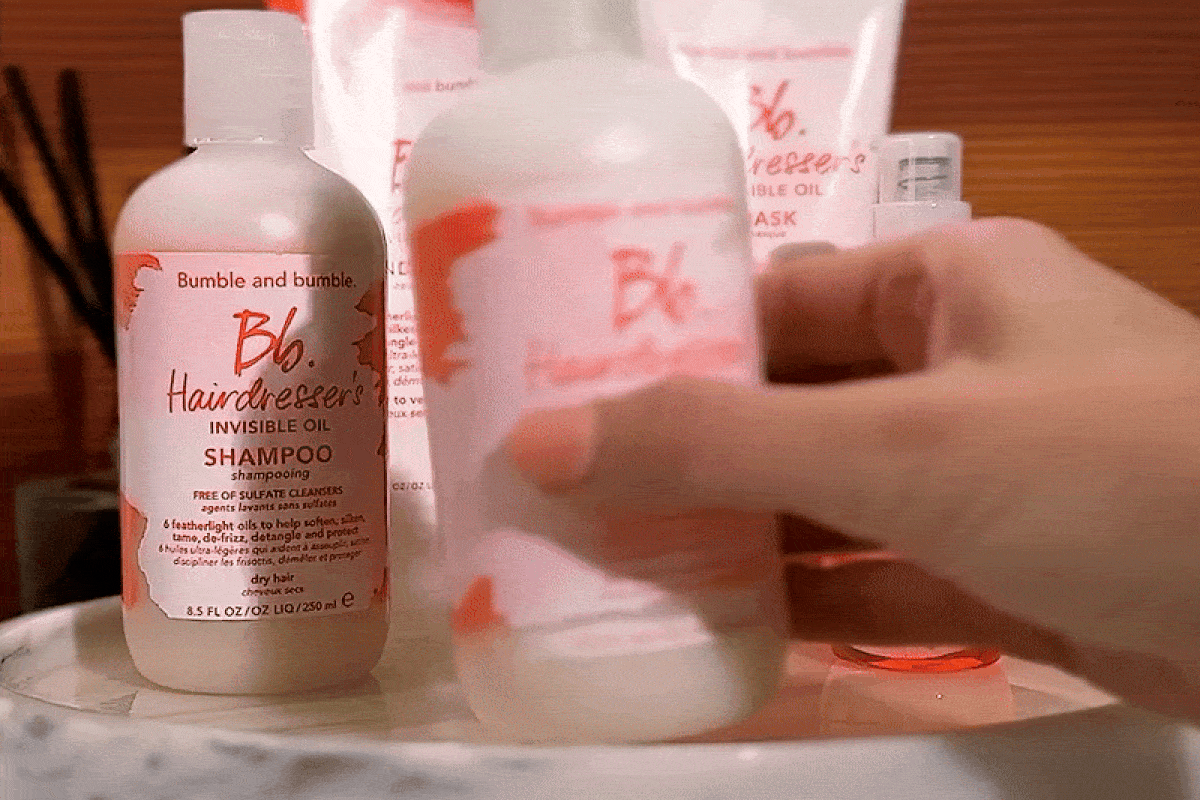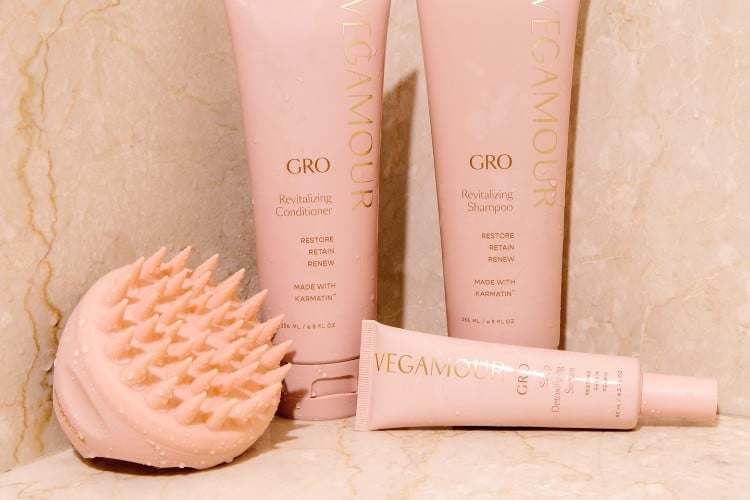If you’re on the hunt for a natural boost for your hair, look no further than green tea. This isn’t just a drink for your afternoon relaxation; it’s like a gym workout for your hair. Not only does green tea possess endless health benefits, but its unique properties and active compounds can also contribute to healthy and stronger hair. And guess what? Science proves it. In today’s article, we’re breaking down all the benefits of green tea for hair growth and how to use it to maximize the results.
What is green tea?
Green tea is one of the least processed teas made from the leaves of the Camellia sinensis plant. Most of the benefits of green tea are attributed to its high content of polyphenols, including flavonoids and catechins, which make about 30% of all green tea compounds. Among the catechins in green tea, epigallocatechin-3-gallate (EGCG) is the most researched one and is found in the largest amount. Moreover, green tea contains other hair-strengthening compounds like vitamins (C, B2, E) and amino acids.[1]
How green tea promotes hair growth
Green tea polyphenols, especially EGCG, are known to have multiple benefits that can support the hair growth process.
Inhibits DHT
One of the green tea benefits for hair growth is reducing the levels of dihydrotestosterone (DHT) — an androgen hormone that often attacks follicles and induces hair loss. Studies have shown that green tea, thanks to its content of EGCG, can reduce hair loss by protecting hair follicles against the effects of DHT.[2][3] More specifically, it was found that EGCG inhibits the 5α-reductase activity, an enzyme that converts testosterone to DHT.
Stimulates hair follicles
Studies have also shown that green tea can stimulate a group of cells within the hair follicles that regulate hair growth.[4] This suggests that green tea can support hair growth not only in the normal hair cycle but also in certain conditions of alopecia, which is helpful if you have thinning hair.
Boosts blood flow and nutrient delivery
Here’s another fact: Green tea promotes hair growth by enhancing blood circulation and oxygen delivery to the hair follicles. A study found that consuming green tea beverages for 12 weeks significantly improved blood flow, largely attributed to its rich polyphenol content.[5] Improved circulation ensures that hair follicles receive essential nutrients. Conversely, inadequate blood flow can reduce nutrient delivery to hair follicles, often leading to thinning and weak hair.
It’s a rich source of antioxidants
It’s known that green tea is a rich source of polyphenols, which are powerful antioxidants. Antioxidants are molecules that protect hair cells against the damaging effects of oxidative stress. Studies point out that oxidative stress is a common cause that prematurely ages the hair follicles and decreases hair production, leading to androgenic alopecia.[6]
Anti-inflammatory properties
The last mechanism through which green tea stimulates hair growth is its anti-inflammatory effects. In one study published in 2016, green tea and its major compound, EGCG, have been demonstrated to have potent anti-inflammatory effects.[7] Therefore, green tea can relieve inflammation in the hair follicles. By targeting inflammation, green tea may support hair growth.
How to use green tea
- Shampoo or conditioner: Use a shampoo containing green tea extract.
- Hair mask: Apply a green tea mask and leave it on for 5–10 minutes.
- Supplements/drinking: Drink 1–2 cups of green tea per day or take supplements.
The verdict
Current scientific research suggests that green tea supports hair growth. It achieves this by hindering DHT conversion, activating hair follicles, enhancing blood circulation and nutrient delivery, and offering potent antioxidant and anti-inflammatory benefits.
- Shin S, Kim K, Lee MJ, et al. Epigallocatechin Gallate-Mediated Alteration of the MicroRNA Expression Profile in 5α-Dihydrotestosterone-Treated Human Dermal Papilla Cells. Ann Dermatol. 2016;28(3):327-334. doi:10.5021/ad.2016.28.3.327
- Chacko SM, Thambi PT, Kuttan R, Nishigaki I. Beneficial effects of green tea: a literature review. Chin Med. 2010;5:13. Published 2010 Apr 6. doi:10.1186/1749-8546-5-13
- Kim YY, Up No S, Kim MH, Kim HS, Kang H, Kim HO, Park YM. Effects of topical application of EGCG on testosterone-induced hair loss in a mouse model. Exp Dermatol. 2011 Dec;20(12):1015-7. doi: 10.1111/j.1600-0625.2011.01353.x. Epub 2011 Sep 22. PMID: 21951062.
- Kwon, Ohsang & Han, J.H. & Yoo, H.G. & Chung, Jange-Hwan & Cho, Kyu-Woan & Eun, H.C. & Kim, Kyu Han. (2007). Human hair growth enhancement in vitro by green tea epigallocatechin-3-gallate (EGCG). Phytomedicine : international journal of phytotherapy and phytopharmacology. 14. 551-5. 10.1016/j.phymed.2006.09.009.
- Heinrich U, Moore CE, De Spirt S, Tronnier H, Stahl W. Green tea polyphenols provide photoprotection, increase microcirculation, and modulate skin properties of women. J Nutr. 2011 Jun;141(6):1202-8. doi: 10.3945/jn.110.136465. Epub 2011 Apr 27. PMID: 21525260.
- Trüeb RM. Oxidative stress in ageing of hair. Int J Trichology. 2009;1(1):6-14. doi:10.4103/0974-7753.51923.
- Ohishi T, Goto S, Monira P, Isemura M, Nakamura Y. Anti-inflammatory Action of Green Tea. Antiinflamm Antiallergy Agents Med Chem. 2016;15(2):74-90. doi: 10.2174/1871523015666160915154443.





